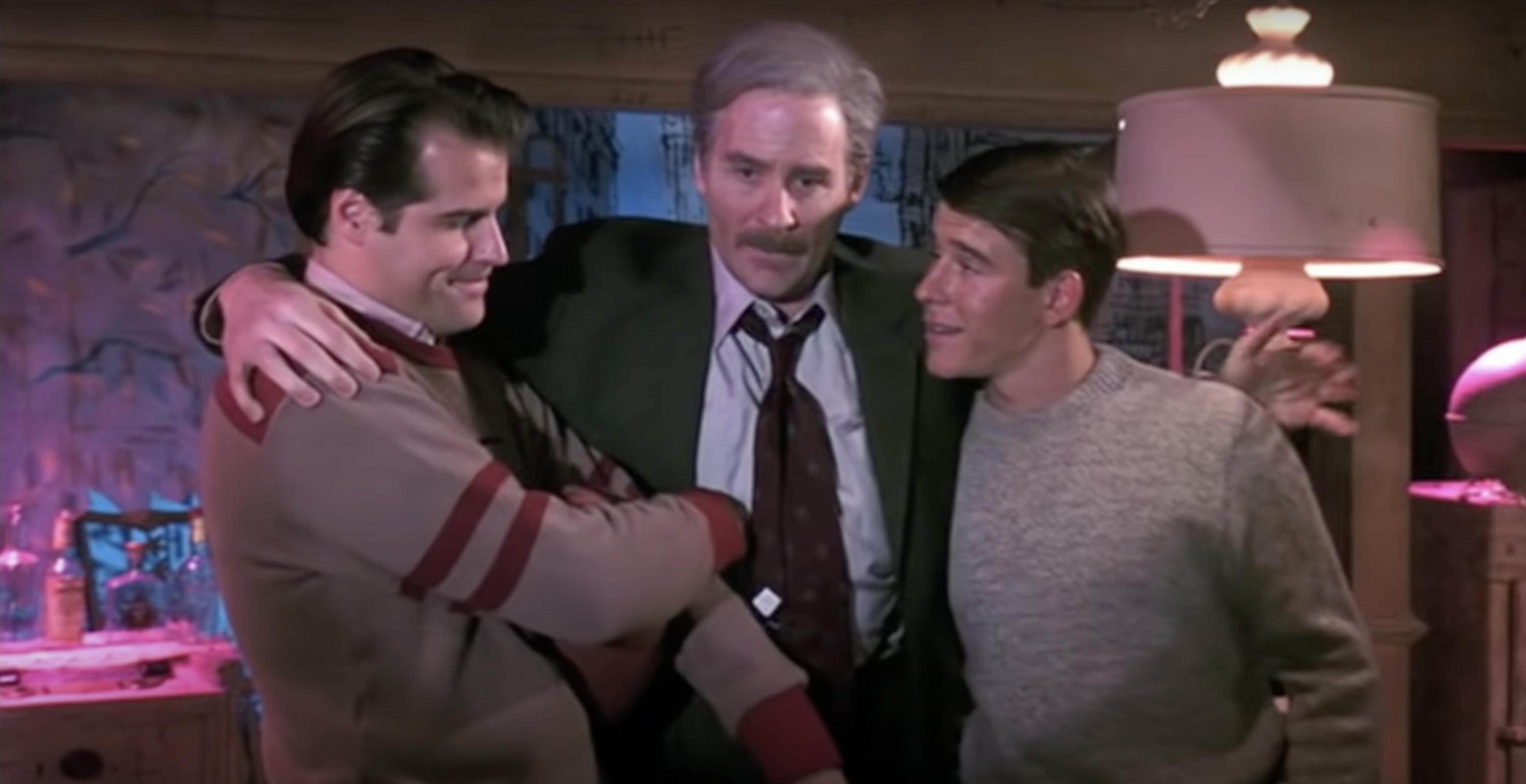Reviews
The best films of 2025 (for me)
2025 was a great year for film. I saw 62 films released this year; the ones I enjoyed the most were:
- 28 Years Later
- Eddington
- One Battle After Another
- Sinners
- Bugonia
- Mickey 17
- Conclave
- Grand Theft Hamlet
- Splitsville
- Sunlight
My full ranked list is here. I’d happily rewatch the top 30.
I’m still looking forward to watching Palani’s It Was Just an Accident. I’ve avoided watching The Shrouds because I find it hard to imagine I won’t have any more Cronenberg films to watch after this, and I don’t want to dislike it. I’ve also deliberately dodged and Kogonada’s A Big Bold Beautiful Journey because I love his earlier movies and the prospect of this one being a mess has scared me off.
Anachronism of a Salesman

Anthony Lapaglia and Josh Helman in Death of a Salesman
I saw the Sydney production of Death of a Salesman with Anthony Lapaglia in it. It was an interesting production. It suffered from being too faithful to the play as originally imagined, with uncreative staging. The costumes were faithful to the ’30s and ’40s, and the set was surprisingly static, with limited use of projection or dynamic elements.
The performances were great throughout, though. Alison Whyte fully inhabits the character of Linda, Josh Helman does a great job as Biff, and Anthony Phelan (one of the best vocal talents in Australian acting) brings a ghostly gravitas to the role of Willy’s brother Ben.
The play’s themes about escaping grinding precarity, forging a better life, and avoiding parental disappointment seem more relevant now than at any time since Miller wrote it. But the costuming and staging make it unlikely that the audience would recognise any of that in the play.
This is a pity. By failing to update the production design, the markers of racism and precarity are entirely invisible to a 21st-century audience. In 1949, the playwright David Mamet described Death of a Salesman as:
“the greatest American play, arguably, is the story of a Jew told by a Jew and cast in “universal” terms. Willy Loman is a Jew in a Jewish industry. But he is never identified as such. His story is never avowed as a Jewish story, and so a great contribution to Jewish American history is lost. It’s lost to culture as a whole, and, more importantly, it’s lost to the Jews, its rightful owners.”
Though this may have flown over the heads of most of the clueless 1940s U.S. audiences, some might have recognised themselves in Willy and Biff Loman. None would in this production.
Racism, classism, and precarity are still experienced by workers everywhere. By the security guards we pass every day. By the workers who take care of our old people and children. By the warehouse pickers and delivery drivers who bring us our purchases. By most of us.
Death of a Salesman still has important points to make about the meaninglessness of superficial charm and chasing material gain at all costs. By staging it as a historical piece, this production obscures its most powerful messages.
This post first appeared on Ben Harris-Roxas' blog at benhr.xyz

Kevin Kline playing Willy Loman in Soapdish (1991)
Podcast trawling: hipsters, the history of drag, and segregation through the built environment
One of my infrequent reports from my endless quest for the perfect podcast episode.
How the hipster economy went mainstream - The Culture Journalist
⭐️⭐️⭐️/5
How a consumer aesthetic about “edge” without any semblance of ideology went mainstream.
The History of Drag - Betwixt The Sheets, The History of Sex, Scandal & Society
⭐️⭐️⭐️/5
The topic is so interesting it rises above the presenter’s irritating flourishes.
Segregated by Design - Architecture is Political
⭐️⭐️⭐️⭐️/5
A fascinating description of how this plats out in the U.S.
I watched American Fiction last night. I haven’t enjoyed a film that much in a long time. Jeffrey Wright and Cord Jefferson, so good. 4½ stars
"It's not that A.I. are going to automate whatever, it's the social automatism that goes with them"
I recently finished reading Resisting AI: An Anti-fascist Approach to Artificial Intelligence by Dan MacQuillan. It’s an important book that sets out a vision for restructuring AI according to principles of mutual aid and solidarity (and a kind of revived cybernetics?).
I came across is through a Trashfuture episode back in April - audio clip attached.
Worthwhile for anyone who wants to think beyond what is, to what could be.
The Deluge
Stephen Markley has crafted a well-written, thousand-page sprawling multi-person narrative about the havoc we’ll face over next two decades due to climate change.
We follow a range of characters including a larger-than-life climate activist, a small group devoted to resisting extractivism through violence, a curmudgeonly climate scientist, a poor Midwesterner with a history of addiction, a modeller with autism, a PR shill for carbon polluters, and perhaps a dozen more characters. As the book unfolds we witness increasing climate chaos and political mayhem, fascism, collective action, gradual inadequate political change.
I liked this book – and I think it’s important – but it’s difficult, weighty reading. The vision of what the next two decades will hold seems accurate, chilling, and is frankly emotionally battering. Markley clearly understands climate science and has devoted considerable effort to imagining the unravelling of politics as climate disasters occur more frequently and vested interests dig in.
A major weakness of the book is that it focuses entirely on the perspective of Americans. While many of the horrifying impacts of the climate catastrophe described in the book affect the Global South most, we never follow the perspective of those who live beyond the U.S.’ borders. This is perhaps understandable. Markley is writing from perspectives that he knows and understands, primarily for an American audience. Unfortunately in doing so he perpetuates the kind of American egocentrism and exceptionalist thinking that has driven much of the climate catastrophe that we face.
In writing this review I’ve realised that the book could perhaps be 200-300 pages shorter. Many characters’ perspectives are not critical to the overall plot, and entire strands remain unresolved. Some of this meandering writing asists world-building, and the lack of resolution enhances the overall realism (do any of our lives have neat endings?).
There is a significant through-line about whether the urgency of the climate emergency requires violent direct action, or if social movements are the only way the necessary change can be achieved. Markley clearly thinks the latter, and I suspect he’s right. He explores the moral and interpersonal costs of this kind of political violence, which are some of the more interesting aspects of the book.
The Deluge is a powerful work of foresight-infused fiction, and if you’re not convinced of the urgency of climate action by the end you haven’t been reading properly. A stark future lies ahead, and sooner than we think. For these reasons I recommend it to others, but I’m reluctant to return to it myself.
